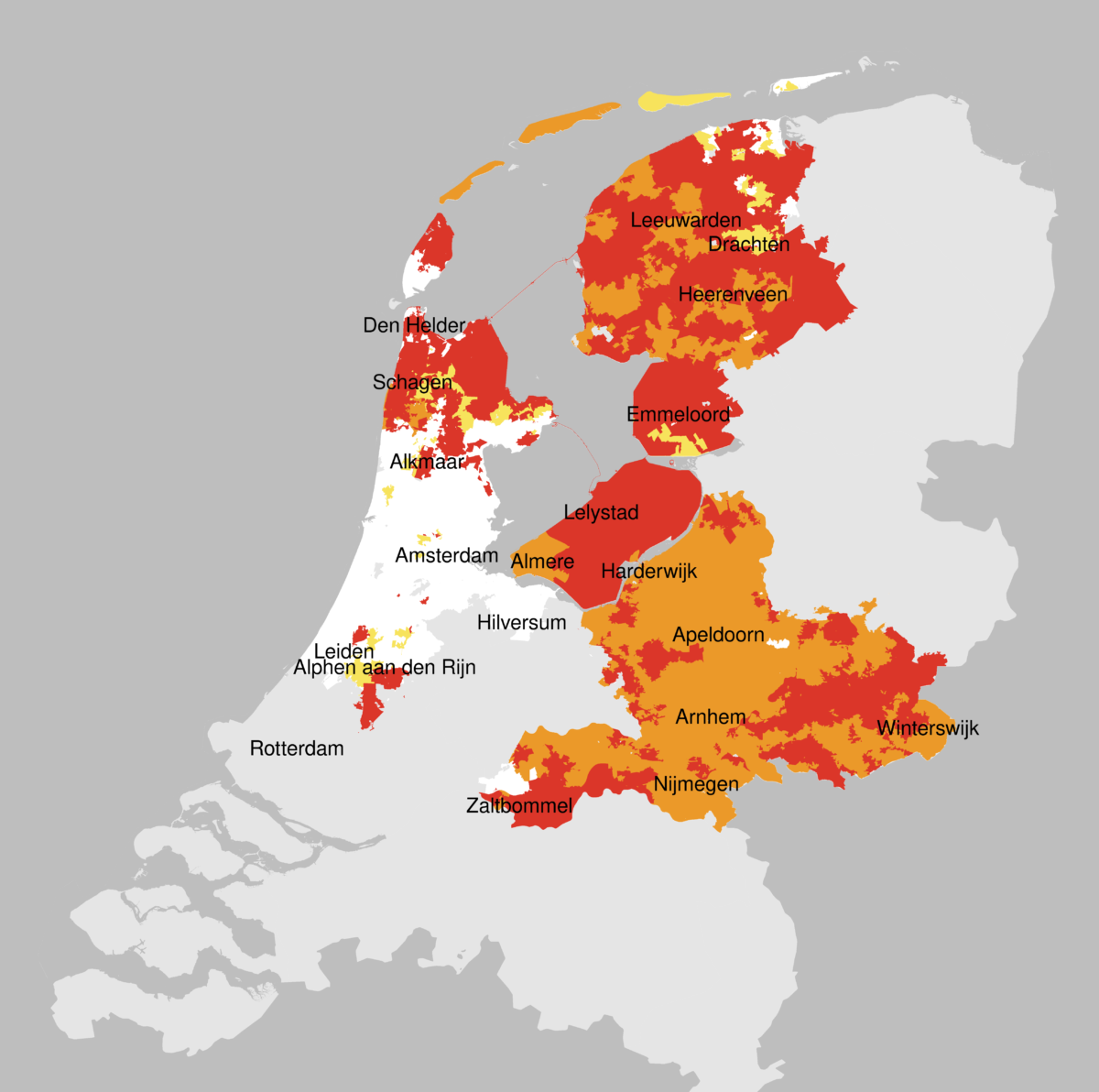Dutch power and gas provider Liander – which serves the provinces of Gelderland and Noord-Holland and parts of Flevoland, Friesland and Zuid-Holland – has announced that new grid bottlenecks have arisen in the provinces of Friesland and Gelderland and the maximum network capacity has been reached in both regions.
“Congestion management does not offer a solution here, according to our research,” the company said in a statement.
It also invited the developers of large scale power plants in the area to immediately contact its experts for advice. “Even in areas where there is still capacity, we recommend requesting capacity in due time. Liander cannot guarantee that capacity will remain available for a long time,” it also stated.
In December, Netbeheer Nederland, the Dutch association of national and regional power network operators, updated the congestion map for the high-voltage and medium-voltage grids. Dutch electricity transmission system operator (TSO) Tennet also recently developed an interactive online map showing the locations in the country where the power grid is most congested.
Over the past two years, Liander has implemented several measures to increase grid capacity in several Dutch regions afflicted by grid constraints, which are preventing more renewable energy plants from coming online. These include the deployment of two giant transformers and the application of congestion management to a bottleneck in the grid.
This content is protected by copyright and may not be reused. If you want to cooperate with us and would like to reuse some of our content, please contact: editors@pv-magazine.com.




3 comments
By submitting this form you agree to pv magazine using your data for the purposes of publishing your comment.
Your personal data will only be disclosed or otherwise transmitted to third parties for the purposes of spam filtering or if this is necessary for technical maintenance of the website. Any other transfer to third parties will not take place unless this is justified on the basis of applicable data protection regulations or if pv magazine is legally obliged to do so.
You may revoke this consent at any time with effect for the future, in which case your personal data will be deleted immediately. Otherwise, your data will be deleted if pv magazine has processed your request or the purpose of data storage is fulfilled.
Further information on data privacy can be found in our Data Protection Policy.